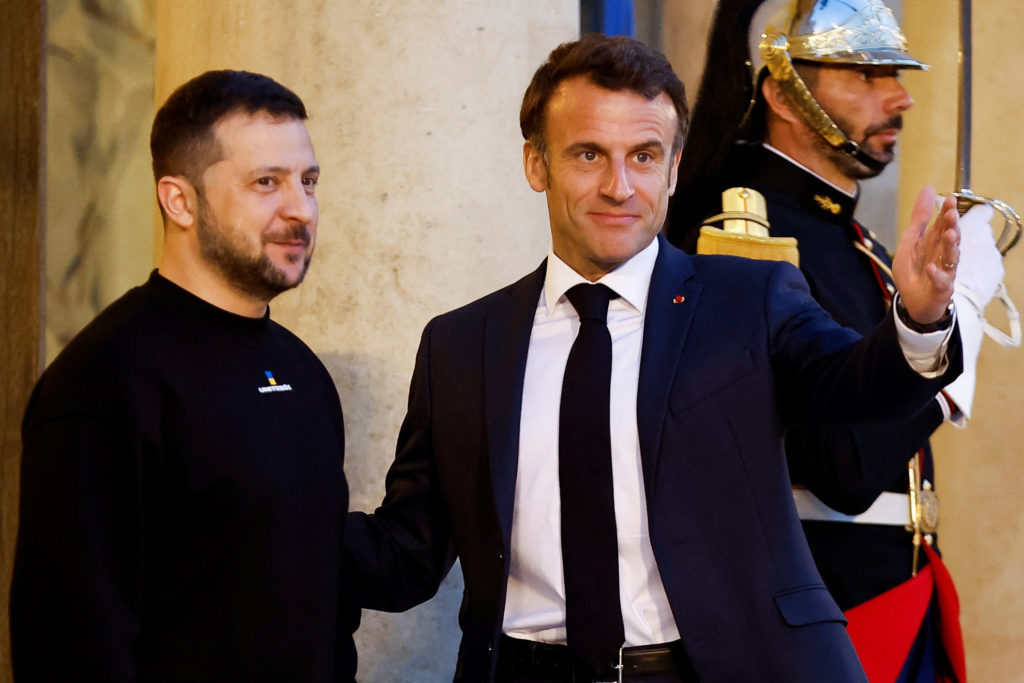KYIV, Ukraine — In a powerful show of unity, the leaders of France, Germany, the United Kingdom, and Poland convened in Ukraine’s capital on Saturday, May 10, 2025, to call for an immediate and unconditional 30-day ceasefire in the Russia-Ukraine war.
The high-stakes visit comes amid growing international pressure on Moscow to end a conflict that has stretched into its third year.
French President Emmanuel Macron, German Chancellor Friedrich Merz, British Prime Minister Keir Starmer, and Polish Prime Minister Donald Tusk made the journey to Kyiv via train from Poland.
Their visit marks the first coordinated mission of this kind by the four major European powers since the onset of Russia’s full-scale invasion in 2022.
In a joint press conference with Ukrainian President Volodymyr Zelenskyy, the leaders warned that failure by Russia to comply would result in “massive sanctions,” specifically targeting the Kremlin’s energy exports and banking institutions.
Macron also raised the possibility of deploying foreign troops to monitor any future truce, stating that “the United States would take the lead in monitoring a proposed ceasefire, with support from European countries.”
“Only one country started this illegal conflict, and that was Russia and Putin,” Starmer declared.
“And only one country stands in the way of resolving it peacefully, and that is Russia and Putin.”
The proposed ceasefire would encompass land, sea, and air operations across all conflict zones, creating a pathway to renewed peace negotiations.
According to Ukraine’s Foreign Minister, Andrii Sybiha, Kyiv is prepared to begin the truce “starting on Monday,” should Moscow agree.
“We must end this war with a just peace. We must force Moscow to agree to a ceasefire,” said Andriy Yermak, Zelenskyy’s chief of staff.
“There is a lot of work to do, a lot of topics to discuss.”
The joint visit was followed by a phone call with U.S. President Donald Trump, who returned to office in January and has since made ending the war a priority.
The leaders coordinated their strategy during the call, the Ukrainian Ministry of Foreign Affairs confirmed.
Trump has been a strong advocate of the 30-day ceasefire initiative, calling it a potential foundation for lasting peace.
“Think of the hundreds of thousands of lives that will be saved,” he wrote in a recent Truth Social post.
Despite the coordinated push, the Kremlin has dismissed the demand.
Speaking to reporters, Russian presidential spokesperson Dmitry Peskov described the European leaders’ statements as “confrontational” and unhelpful to diplomatic efforts.
“We hear many contradictory statements from Europe,” Peskov said.
“They are generally confrontational in nature rather than aimed at trying to revive our relations. Nothing more.”
Putin, speaking defiantly during a military parade in Moscow on Friday marking the 80th anniversary of Russia’s World War II victory, made no reference to the proposed ceasefire.
However, he has since suggested the possibility of holding direct peace talks with Ukraine in Istanbul on May 15 — a proposal welcomed cautiously by Western capitals but yet to be formally accepted by Kyiv.
Ukraine’s Foreign Minister Sybiha emphasised the need for robust monitoring mechanisms if Russia agrees to the ceasefire.
“If Russia agrees and effective monitoring is ensured, a durable ceasefire and confidence-building measures can pave the way to peace negotiations,” he said.
In a joint statement issued after the Kyiv summit, the five leaders — Zelenskyy, Macron, Merz, Starmer, and Tusk — reiterated their commitment to peace: “Alongside the US, we call on Russia to agree [to] a full and unconditional 30-day ceasefire to create the space for talks on a just and lasting peace.”
They concluded, “The bloodshed must end, Russia must stop its illegal invasion, and Ukraine must be able to prosper as a safe, secure and sovereign nation within its internationally recognised borders for generations to come.”
The spotlight now shifts to Moscow and Kyiv as the international community awaits a response to the ceasefire demand and the possibility of resumed talks in Istanbul later this week.







